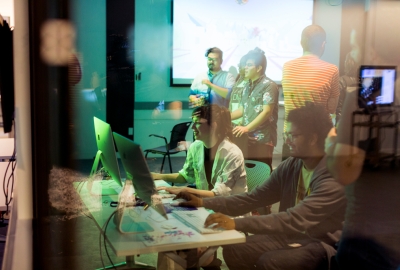This course introduces the fundamentals of AI, explores its application in educational settings, and examines the social, cultural, and ethical implications of AI systems. Through readings, reflections, guest lectures, and hands-on assignments, students design, critique, and build AI tools for learning. Topics include machine learning, neural networks, large language models, human-centered AI, and creative AI. The course culminates in a team-based final project where students design a learning-focused AI system.
Course #
EDCT-GE 2114
Credits
3
Department
Administration, Leadership, and Technology


